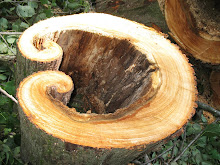Alice Munro
Alice Munro is a widely read, highly decorated and amazing Canadian Fiction writer. She isn't known as well in the states, maybe in part because she writes short stories and we are much more obsessed with the novel here.Here's some stuff from different interviewers and reviewers:
Lorrie Moore in The Atlantic Monthly
Munro deals powerfully with the family and "the wrenching incompatibility of a woman's professional or artistic expression with her familial commitments."
Many of her short stories deal with ambivalent parents who don't expect toward their children as we might expect. "There are no happy ending here, but neither are the tales tragedies. They are constructions of calm perplexity, coolly observed human mysteries.
"Munro has said she sees stories architecturally, as a house whose various rooms one can roam in and out of, forgoing any prescribed order; this accounts for the nonlinear aspects of so many of her narratives."
"All the women here [the short story collection Runaway] are attempted runaways of some sort, and they seem to feel that the situation they run toward harbors more truth and hope than the difficult daily world they run from, though the story itself will not judge."
Jonathan Franzen in the New York Times Book Review
Raves about how fantastic a writer Munro is. "I want to circle around Munro's latest marvel of a book, "Runaway," by taking some guesses at why her excellence so dismayingly exceeds her fame.
1. Munro's work is all about storytelling pleasures
2. As long as you're reading Munro, you're failing to multitask by absorbing civics lessons or historical data.
3. She doesn't give her books grand titles like "Canadian Pastoral," "Canadian Psycho," "Purple Canada," "In Canada" or "The Plot Against Canada"
4. The Swedish Royal Academy is taking a firm stand (too many Canadians and too many short story writers have received the Nobel).
5. Munro writes fiction, and fiction is harder to review than nonfiction.
6. Because, worse yet, Munro is a pure short-story writer.
7. Munro's short stories are even harder to review than other people's short stories
"Here's the story that Munro keeps telling: A bright, sexually avid girl grows up in rural Ontario without much money, her mother is sickly or dead, her father is a schoolteacher whose second wife is problematic, and the girl, as soon as she can, escapes from the hinterland by way of a scholarship or some decisive self-interested act. She marries young, moves to British Columbia, raises kids, and is far from blameless in the breakup of her marriage She may have success as an actress or writer or a TV personality; she has romantic adventures. When, inevitably, she returns to Ontario, she finds the landscape of her youth unsettlingly altered. Although she was the one who abandoned the place, it's a great blow to her narcissism that she isn't warmly welcomed back -- that the world of her youth, with its older-fashioned manners and mores, now sits in judgment on the modern choices she has made. Simply by trying to survive as a whole and independent person, she has incurred painful losses and dislocations; she has caused harm."
Daphne Merkin in The New York Times Magazine
Interviewed Munro in Clinton, Ontario (a three-hour drive from Toronto) where she lives with her second husband, Gerald Fremlin. She has published 10 collections of short stories and one novel. Her books have been translated into 20 languages She has won a National Book Critic's Circle Award in the United States and "every literary prize Canada has to offer."
Munro talked about her two marriages-- she met Fremlin when she was 18 at the University of Western Ontario when they were students and she was already engaged to James Munro. She was married to Munro for 20 years and had three daughters. She was very unsentimental in describing her first marriage. "You got married to have sex. Methods of birth control were too chancy." She also is matter-of-fact in her ambivalence toward being a mother. She didn't feel it was her choice, but something foisted upon her by the expectations of the time.
After leaving her marriage in her early 40s she took an appointment at the University of Ontario and met Gerald Fremlin again. From their university days he was the first admirer of her writing and she counts herself very lucky that both of her husbands supported her craft.
Alice Munro was the oldest of three siblings and grew up in the Scottish-Irish farming community of Wingham, Ontario. Her family were "outsiders on all counts: temperamentally, socially and geographically. Her father was an unsuccessful silver-fox breeder, and the family lived on the outskirts of town in what Munro has described as a 'kind of little ghetto where all the bootleggers and prostitutes and hangers-on lived.'" Unbeknownst to Munro, her father harbored literary ambitions of his own, and wrote a novel which was published shortly after he died.
Munro's mother fell ill and was eventually diagnosed with Parkinsons disease, leaving the oldest daughter to keep the household running at the age of 12. It was a very important event in her emotional life. She wanted to get out of this place where she didn't feel like she fit. She feels guilty that she emotionally abandoned her mother-- not going to see her for the last two years before her death.


0 Comments:
Post a comment
<< Home